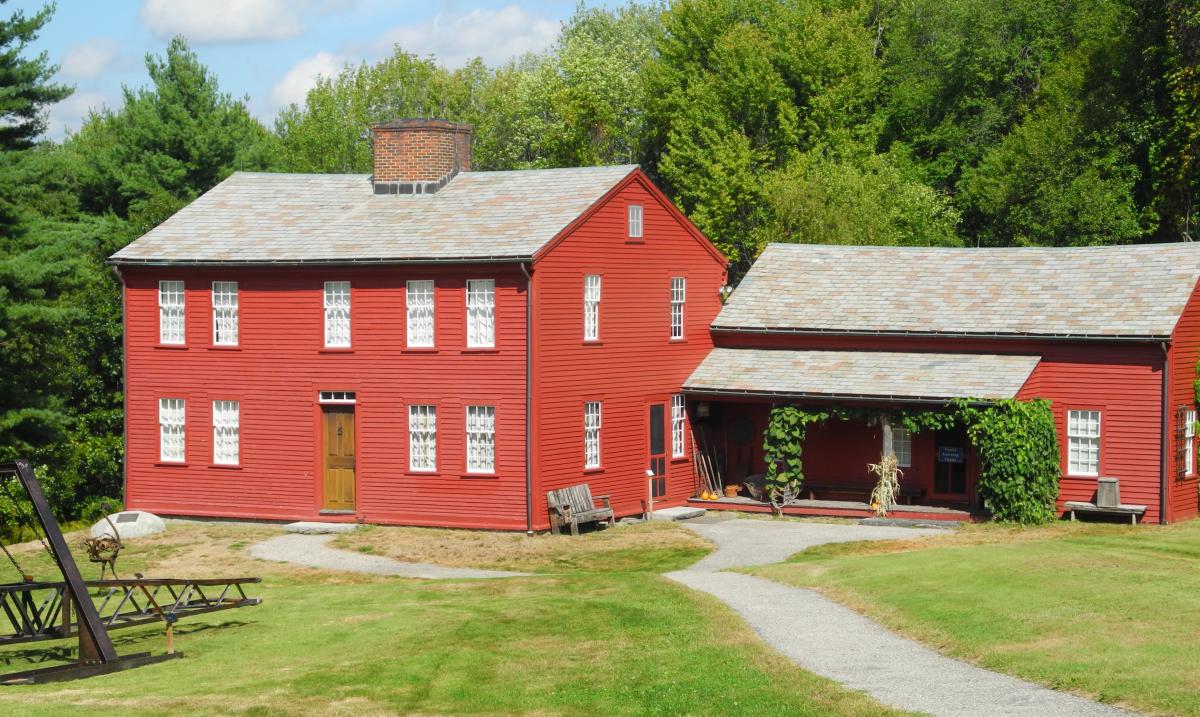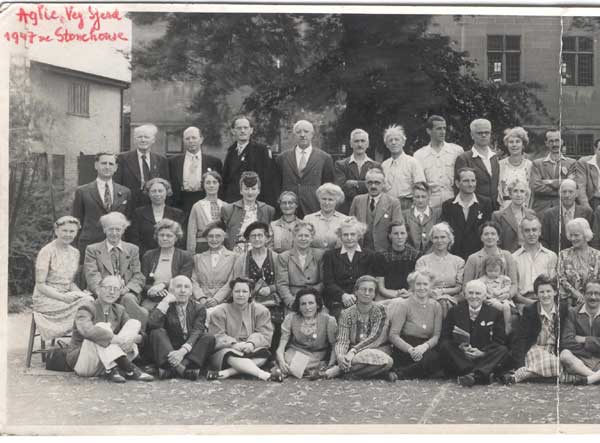Ian McDonald, producer of radio series 'Vegetarianism: The Story So Far', considers how important it is for us to remember the backstory to today's vegan movement. He looks back to animal advocates in the Iron Age, and forward to how modern advocates will be remembered.
As far as I know, the oldest object in the world to mention vegetarianism is an edict of the Indian Buddhist ruler Ashoka. It proclaims that the king abstains from beings who are ‘empsychos’ - translated ‘animate’ or ‘ensouled’. This the ancient Greek idiom for vegetarianism, and if you're wondering why an Indian royal edict is in Greek, then you're getting ahead of me. The edict itself is from the middle of the third century BC (and the first traces of anyone following that idiom through to its logical conclusion - veganism - lie in the future).
Unfortunately, I wasn't able to visit it for radio history 'Vegetarianism: The Story So Far'. There are two reasons for that. Firstly, the edict was found in 1957 in Kandahar; now Afghanistan but once a Greek principality left behind as the tide of Alexander the Great receded, and the western edge of Ashoka's vast domain. So the edict is carved not in the King's Prakit, but in Aramaic and Greek. And secondly, it vanished from the Kabul Museum during the 1990s civil war, leaving naught but a grainy photograph behind.

So instead, I visited the edict on the eastern fringe of Ashoka's domain, on a mountainside in Eastern India, where he fought the battle he says turned his heart against violence. Even though it was the start of the Holi weekend, Dr Bharaiti Pal, one of the few people who could read its Brahmi script, had agreed to visit it with me for an interview.
When she pointed out the word "dharma" ('virtue' or 'moral law') on the edict, and talked about its impact, she didn't just talk about its impact in Ashoka's lifetime. She spoke of modern India, and how Ashoka's princple of non-violence was the same principle that motivated Gandhi, ultimately leading, she said, to Indian independence from the British. To Indians, Ashoka was the last Indian ruler to unify the subcontinent. His emblem, the lion capital, is the emblem of the Republic. He's part of the backstory for all India.
We, as vegans, are no different. We want to know where we're from, and what our backstory is. And not just who passed the baton on to us, but how far the relay stretches back. That's why I wanted to make Vegetarianism: The Story So Far. It's our story, in the form of a 15-part radio series, starting in the Iron Age. London's radio art station, Resonance 104.4FM broadcasts it monthly, and you can download from VegHist.org, or search for my series The Vegan Option on your podcast provider. Because it's downloadable, you can listen to it when you're travelling or doing the dishes. I've used all my BBC training (and the generous funding of backers) to try to do the story justice, with actors, location interviews, and experts from around the world.
So though I was gratified when one listener tweeted that the series had increased their commitment to be vegan, it wasn't really a surprise. When you meet so many people who think that veganism is a recent celebrity fad, it's good to know how far back we go.
We took the baton from pioneers like Donald Watson and Sally Shrigley, who called on "non-dairy vegetarians" to organise in 1944. Donald Watson would have been 106 today, Friday 2nd September, and kept the new Vegan Society's correspondence and newsletter going for its first two years. Sally Shrigley (née Elsie Salling) served the Vegan Society as President or committee member from those first years until her death in 1978. I've noticed how movements' origin stories often get simplified down to one heroic man, and Dr Sam Calvert's work on the Vegan Society's history puts other figures, including women like Sally, back into the story.
Sally Shrigley is pictured in the below left photograph (top row, third from the left) as herself, Donald Watson and other founds attended the 1947 World Vegetarian Congress in Stonehouse, England. A picture of Donald Watson below, to the right, demonstrates him tending his garden.
Behind those pioneers are the Victorian diet reform campaigners. Behind them the idealistic vegan communities like New England's Fruitlands (pictured below), and the same Salford radical scene that produced Marxism and The Guardian. And behind them is a long line of people advocating for animals, from east to west, going back to the crossroads of Persia and Greece where Pythagoras grew up, and the radical ascetic culture of the Ganges plain that produced Jainism and Buddhism.
I find that knowing our story empowers me. When animal advocates argue, we should take comfort in knowing this has been going on ever since the early Buddhist text Vinaya Pitaka portrayed the strictly vegetarian Jains as a loud deceitful rabble. When I hear someone insist I should respect their decision to eat animals because they respect my veganism, I think of Aristotle mentioning a Pythagorean who thought killing animals "was not right for some and wrong for others, but a universal law, extending through the wide-ranging sky and the boundless earth".
Unlike Theodore Parker, we have the privilege to look far back enough to see the arc of the moral universe bending towards justice. The fact that our predecessors weren't yet vegan, or even necessarily vegetarian, shows how far we've come.
But from my perspective, when I see the strides made for animals in the last few decades, it's hard not to compare it to strides our predecessors made in Salford during the industrial revolution or even those philosophers of Magadha on the ancient Ganges plain.

But the loss of our history doesn't only happen in the Afghan civil war. When I read about the death of Mary Bryniak in The Vegan earlier this year, my heart sank for the loss of someone who was part of the beginning of the movement in the 1940s and 1950s. Our lost history is compounded by the silence of women in the historical record. Many of our distant predecessors - Buddhists, Jains, Manichaeans, Therapeuti, and Pythagoreans - were monastic orders that included women. But their words were rarely passed on.
Online archives include The Vegan back to 1944, the 1976 'Open Door' BBC2 show by and about The Vegan Society, and the archives of The Humanitarian League (FB). Yet much remains missing.
Many early BBC broadcasts about veganism were lost into the same vortex as (more famously) early Doctor Who episodes. These included:
• Vegan dishes on a BBC TV cookery program (Tuesday 13th and 27th March 1951)
• Eva Batt on the BBC World Service (Friday 1st February 1963)
• Several vegans on The Philpott File (Saturday 22nd January 1972).
Nor can I find anything recorded on the subject by early vegan celeb Annette Mills (Muffin the Mule), nor (despite being one of his era's best known vegetarian voices) George Bernard Shaw.
So it is important that we keep our records, and that we record our voices and words. The British Library holds the archives of an animal welfare oral history project that includes long conversations with campaigners like Keith Mann and the late Margery Jones. In California, The Animal Museum runs an oral history project. The Vegan Society holds interviews with Donald Watson and Mabel Cluer. But our birth as a movement in the 1940s and 1950s is slipping out of living memory. Fortunately, we now all carry audio recorders with us all the time.
So if you're part of a vegan group with some old hands with long memories, consider having a long chat with them and sending it to The Vegan Society and The Animal Museum for safekeeping.
Taking an oral history is not difficult, but life stories can take hours to record patiently, whilst still being careful to understand which bits are open for public use and which are for archiving. Be that as it may, we benefit the future generations who follow in our footsteps when we sit down for conversations with the people who were part of the early history of the movement. The Oral History Society has plenty of information about how.
 If you know (or are) someone whose memories of the movement go back to the 1960s or earlier, please consider reading up on how to do an oral history and recording a chat. If your local vegan group has someone with memories of the 50s or (one dares hope) the 1940s, and no-one local has time to have an oral history chat, we might be able to find a volunteer to interview them. It would be particularly good to hear from (or about) John Heron from Reigate, who was active on the committee as a young man in the 1950s; or Christina Harvey from Highgate in London, who was convinced of the merits of veganism at a talk in 1948, and would now be in her eighties.
If you know (or are) someone whose memories of the movement go back to the 1960s or earlier, please consider reading up on how to do an oral history and recording a chat. If your local vegan group has someone with memories of the 50s or (one dares hope) the 1940s, and no-one local has time to have an oral history chat, we might be able to find a volunteer to interview them. It would be particularly good to hear from (or about) John Heron from Reigate, who was active on the committee as a young man in the 1950s; or Christina Harvey from Highgate in London, who was convinced of the merits of veganism at a talk in 1948, and would now be in her eighties.
And I'd like to throw these questions out there too:
• On 17 Jun 1968, BBC Radio 4 broadcast in Wales a short interview at a vegan commune. Alas, their name isn't in the archive. The likeliest candidate is the late Tony Kelly of the Selene Community. Would anyone in the pagan or communes movements be able to confirm?
• Any home tapings of those early BBC mentions of veganism would, of course, be a small miracle. (As always, the copyright rests with the BBC; but they would likely be keen to get their archive back too.)
• Finally and further afield, it’s thought that the Eastern Bloc suppressed its vegetarian movements (e.g. Hungary 1951), but I've been unable to track down any records, proclamations, diary entries, or eyewitnesses of this. Any leads?
With the recent surge in veganism I realise the past is, for many people reading this, another country. I hope my series offers you a chance to enjoy a visit.
By Ian McDonald
Ian McDonald produces The Vegan Option, and is currently working on 'Vegetarianism: The Story So Far', a 15-part backstory to today's vegan movement. It is freely downloadable, and broadcast on London's Resonance FM at 5pm on the first Tuesday of each month, repeated 10am Thursday. Episode 7, about the middle ages, is broadcast next Tuesday.
If you would like to get involved in making sure our history as a movement is remembered and maintained, please get in touch.
The views expressed by our bloggers are not necessarily the views of The Vegan Society.



Comments
veggie-vegan